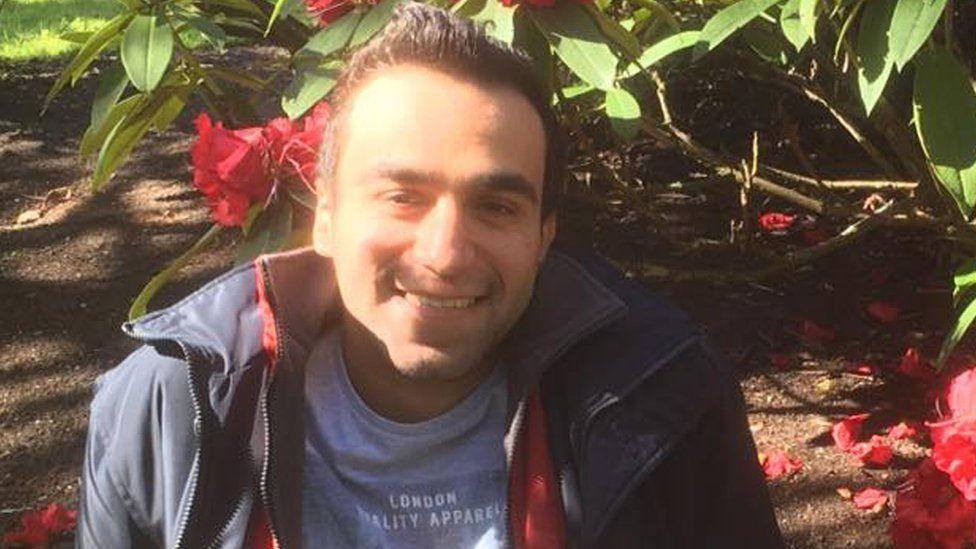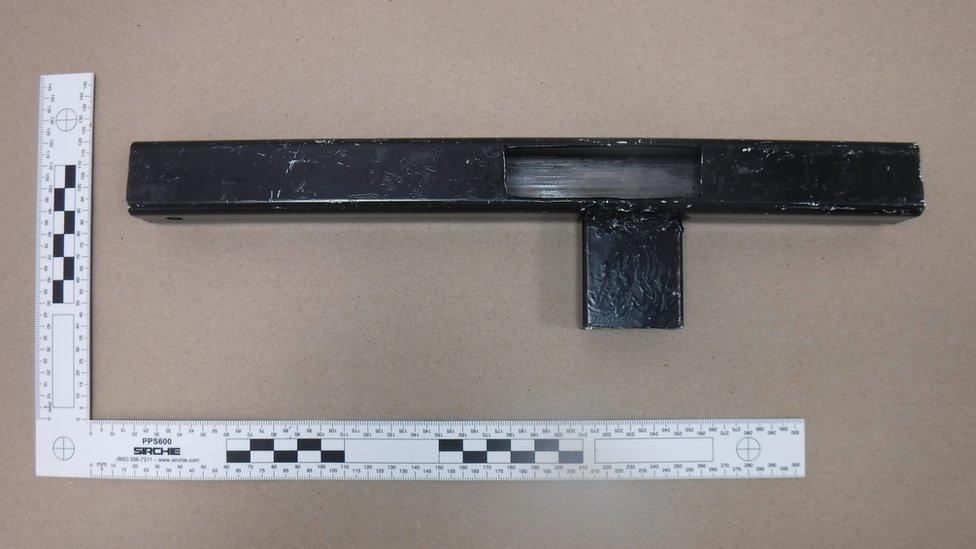Liverpool Women's Hospital bomber had asylum grievance, police say
- Published

Emad Al Swealmeen was killed in the blast
A man who died when his homemade bomb went off outside a hospital had a grievance against the British state because his asylum claim was rejected, a police investigation has found.
Emad Al Swealmeen's device exploded in a taxi outside Liverpool Women's Hospital on 14 November 2021.
The 32-year-old was killed, but driver David Perry escaped the blast.
Counter Terrorism Policing North West said his grievance "combined with mental ill health" led to the attack.
The force's report into the bombing said it was "most likely" that Al Swealmeen's grievance against the British state for failing to accept his asylum claim had "compounded his mental ill health, which, in turn, fed that grievance and ultimately a combination of those factors led him to undertake the attack".
Det Supt Andy Meeks said it was believed Al Swealmeen intended to go into the hospital and detonate his device, but it was likely that it had exploded earlier than planned.
He said there was no evidence anyone else was involved in the attack.
Watch: The cab pulled up outside Liverpool Women's Hospital and exploded into flames
The explosion, which was captured on the hospital's CCTV, propelled ball bearings through the taxi, blowing out its front windscreen.
The glass hit a tree 52ft (16m) away and damage was caused to the hospital's windows.
Det Supt Meeks said Al Swealmeen, who was born in Iraq, had gone to considerable lengths to stay in the country, including converting to Christianity, although the authenticity of his conversion was in doubt.
A previously confidential 2015 asylum judgment, released to the BBC in 2022, also revealed his claim of being a Syrian refugee had lacked basic facts.
The force said Al Swealmeen came to the UK in 2014, having applied for a visa in Abu Dhabi claiming he wanted to travel for a holiday and to watch the filming of Britain's Got Talent in Belfast.
He falsely claimed to be a Syrian national when interviewed by Home Office officials and his asylum claim was rejected.

Police found two unfinished improvised firearms at one of his addresses
Det Supt Meeks said Al Swealmeen began a conversion to Christianity in 2015, when his asylum appeal rights were exhausted, and was baptised at Liverpool Cathedral in November that year.
He forwarded letters of support from members of the church community to the Home Office to support his asylum claim in 2017.
In January 2020, a further asylum claim was rejected on the basis he had not truly accepted the Christian faith and rejected others.
Det Supt Meeks said Al Swealmeen's deterioration in mental health coincided with developments in his asylum case.
He said he was detained by police under the Mental Health Act in 2015 and was later sectioned.
The investigation into the attack found Al Swealmeen rented a flat in Rutland Avenue, about 1.5 miles (2.4km) from the hospital, with the "sole purpose" of building the bomb.
Officers found mixing bowls and bags of chemicals inside the flat, along with a mobile phone containing instructions on how to make explosives.
A search of his other address, which he shared with other asylum claimants in Sutcliffe Street, uncovered two unfinished improvised firearms.
A subsequent search of his mobile phones found they had been largely erased and he had taken precautions to conceal his intentions.
As a result, the report said officers would "never truly know why Al Swealmeen took the actions that he did that led to the explosion".
Following the report's publication, Merseyside Police's Assistant Chief Constable Jon Roy said the public's reaction to the attack had been "unbelievable", adding: "In the face of adversity, they were strong and determined and unbowed."
"Ultimately, the aim of terrorists is to create conflict, distrust and fear, but that didn't happen here and people across Liverpool stood shoulder to shoulder," he added.

Why not follow BBC North West on Facebook, external, X, external and Instagram, external? You can also send story ideas to northwest.newsonline@bbc.co.uk, external
Related topics
- Published17 November 2021
